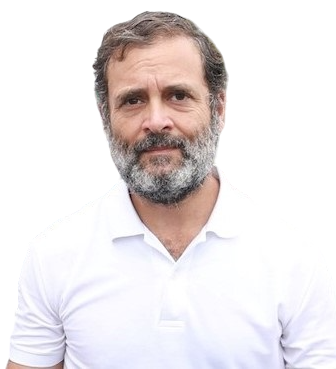HYDERABAD — Speaking at the Bharat Summit 2025 on Saturday, Congress leader and Leader of Opposition in the Lok Sabha Rahul Gandhi delivered a stirring call for a “new kind of leadership” adapted to the radically changed political landscape of the modern world. Emphasising the transformative power of love, empathy, and deep listening, Gandhi urged political leaders to move away from models driven by anger, hatred, and fear.
Addressing a gathering of policymakers, activists, and students, Gandhi warned that the traditional playbook of democratic politics had been rendered obsolete by the consolidation of power in capital, media, and social media platforms over the past decade.
“The rules that applied a decade ago no longer hold,” Gandhi said. “The tools that once worked cannot stand up to the modern concentration of capital, media and social media. The old model of a politician is obsolete; a new kind of leadership must be constructed.”
Criticism of Fear-Driven Politics
Gandhi sharply criticised the ruling Bharatiya Janata Party (BJP) for what he described as deliberate efforts to suppress dissent and instil fear among the populace. He accused the government of systematically compromising democratic spaces, including the independence of the media and the vibrancy of civil society.
“The voice of the Opposition and the people is not heard but crushed,” Gandhi declared. Reflecting on these challenges, he recounted the genesis of his 4,000-km Bharat Jodo Yatra, a march from Kanyakumari to Kashmir aimed at reconnecting with the masses and reclaiming public discourse for democratic engagement.
The Transformative Power of Listening
One of the key personal lessons Gandhi shared from the Bharat Jodo Yatra was the importance of listening over speaking. He described how interacting directly with thousands of citizens, and hearing their concerns without interjecting, profoundly reshaped his approach to leadership.
READ MORE: Albanese Slams Dutton’s Canberra-Only Public Service Cuts as ‘Outrageous’
“I discovered the transformative power of listening during the yatra. I spoke less and listened more, and that changed everything,” he reflected.
Gandhi also recounted an emotional encounter with a woman who opened up about enduring domestic violence—highlighting how deeply embedded and pervasive suffering is among ordinary citizens, especially women. Such experiences, he said, reaffirmed his belief in building a politics centered on compassion and emotional understanding.
Politics of Love and Empathy
Explaining his evolving political philosophy, Gandhi said, “Until the yatra, I had never used the word ‘love’ in politics. But once I did, people began to respond.” He underscored how love and affection can “disrupt hate more powerfully than any argument,” offering an alternative political lens urgently needed in today’s polarised world.
While acknowledging that disagreements on policy are inevitable, Gandhi contrasted the emotional frameworks underpinning different political camps. “While their lens is anger, hatred, and fear, our lens must be love, affection, and deep listening,” he asserted.
A Call for Democratic Renewal
Beyond personal anecdotes and critiques of the ruling party, Gandhi called for a collective effort to revitalise democratic spaces and foster a new ethos in leadership. He expressed hope that forums like the Bharat Summit would serve as incubators for fresh ideas capable of reimagining not just Indian politics but global democratic practices.
“I am confident that this summit will help build the ideas we need for a new kind of politics in India and the world,” Gandhi said, concluding his address.
A Broader Context
Rahul Gandhi’s remarks arrive at a time when concerns over the health of democracy are being voiced not only in India but around the globe. In an age where misinformation campaigns, economic inequality, and polarised discourse threaten to erode democratic norms, Gandhi’s message of compassion-driven leadership struck a chord with many attendees.
Observers noted that Gandhi’s emphasis on empathy and renewal marks a conscious shift in political communication—a shift aiming to reconnect leaders with the lived realities of their constituents rather than operating solely within elite political circles.
As India gears up for its next general elections, and as debates over democracy’s future intensify worldwide, Gandhi’s vision of leadership rooted in listening, love, and empathy offers a striking counter-narrative to the politics of division and fear.
Whether this vision can translate into electoral gains and tangible political change remains to be seen, but Gandhi’s call for a “new kind of leadership” has undeniably set a tone of introspection and aspiration for the future of democratic engagement.
